It looks like you're using an Ad Blocker.
Please white-list or disable AboveTopSecret.com in your ad-blocking tool.
Thank you.
Some features of ATS will be disabled while you continue to use an ad-blocker.
share:
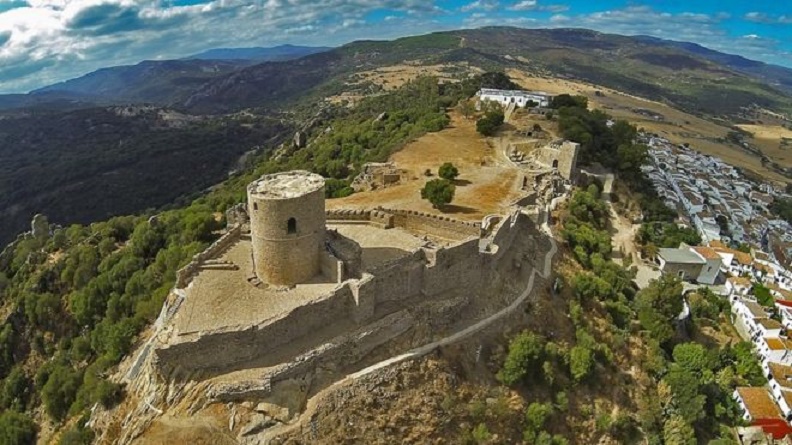
Archaeologists have begun uncovering the remains of what they think could be one of the most important Roman settlements in Spain, under the present-day town of Jimena de la Frontera. Jimena de la Frontera [Credit: Airdronerc] Three Spanish archaeologists stand at the top of what is known locally as the Moorish castle looking at detailed plans. As well as showing the extent of their latest excavations, the drawings reveal that the hilltop town has some of the most significant and virtually untouched Roman remains in the region showing the town to have been a major settlement and shedding light on the power structure of the occupying force of the time. The Castillo de Jimena de la Frontera is the original settlement of the current population of Jimena containing traces of an ancient and multi-cultural history, yet its existence lay hidden for many centuries until a retired archaeologist who used to walk up to the castle on a daily basis spotted signs of early Roman occupation. According to Juan Miguel Pajuelo, the archaeologist who is co-ordinating the phases of the investigation, without the initial unpaid work carried out by Hamo Sassoon who retired to Jimena, the extraordinary Roman city could have still remained undiscovered.
Read more at: archaeologynewsnetwork.blogspot.jp...
Follow us: @ArchaeoNewsNet on Twitter | groups/thearchaeologynewsnetwork/ on Facebook
The view overlooking the plains is breath taking and a great command and control site, I understand why Rome lost the British Isles and even Germania but how could they lose Spain.
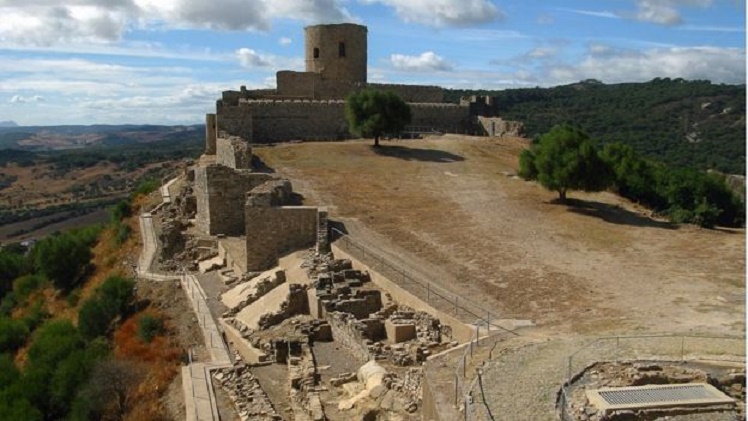
Bilingual coins found on the site are proof of the existence of a Libyan-Phoenican settlement on the site with the name "OBA". After the conquest by Rome the name OBA was Latinised and converted into Res Publica Obensis, endowing it with the status of a town ruled by Latin law under the government of Emperor Vespasian.
A perfect example of pax Romania knitting their known world together, if only they were less brutal and militaristic the beginning of globalization. pls kilk the link and enjoy.
edit on 3-1-2016 by Spider879 because: (no reason given)
a reply to: Spider879
Thanks for posting the link, I feel the first true "Globalization" occurred during the height of the preceding Bronze age. Rome for all it's glory, engineering accomplishments and wide influence was more of a self serving Empire builder than a globalization entity, imho of course.
Thanks for posting the link, I feel the first true "Globalization" occurred during the height of the preceding Bronze age. Rome for all it's glory, engineering accomplishments and wide influence was more of a self serving Empire builder than a globalization entity, imho of course.
originally posted by: Spider879
The view overlooking the plains is breath taking and a great command and control site, I understand why Rome lost the British Isles and even Germania but how could they lose Spain.
Even the best fortifications depend on having good men to put inside them.
Impressive, though.
a reply to: Spider879
They recently did a three part programme on the "making of Spain" on the BBC. It was very good, but completely skimmed over the Neolithic, and indeed much of the Bronze Age, only really giving credit to the Romans. Not that the Romans weren't important, but they were colonialists, not pioneers, and they went where there were crafts, resources and a ready source of labour. That is just the kind of spot the Celts liked, if the Romans took it from them, only a matter of time before someone worked out a new weak spot and exploited it. Hence why fortifications, as well as seige and other war machinery, has, since we started competing over the best spots, been the leaders of technology and innovation.
They recently did a three part programme on the "making of Spain" on the BBC. It was very good, but completely skimmed over the Neolithic, and indeed much of the Bronze Age, only really giving credit to the Romans. Not that the Romans weren't important, but they were colonialists, not pioneers, and they went where there were crafts, resources and a ready source of labour. That is just the kind of spot the Celts liked, if the Romans took it from them, only a matter of time before someone worked out a new weak spot and exploited it. Hence why fortifications, as well as seige and other war machinery, has, since we started competing over the best spots, been the leaders of technology and innovation.
a reply to: Spider879
Actually I believe they were following the inroads into Spain made long before themselves by the Phoenicians. From the middle of the second millennia BC you had a rising Celtic-Iberian civilization (Tartessos) meeting far-ranging Phoenician colonists, expanding across N. Africa, forging what would become the "sea peoples" and blazing across the ancient Med. When they eventually collapsed it was easy (or at least easier) for Greeks and then Romans to expand to those regions.
A perfect example of pax Romania knitting their known world together, if only they were less brutal and militaristic the beginning of globalization.
Actually I believe they were following the inroads into Spain made long before themselves by the Phoenicians. From the middle of the second millennia BC you had a rising Celtic-Iberian civilization (Tartessos) meeting far-ranging Phoenician colonists, expanding across N. Africa, forging what would become the "sea peoples" and blazing across the ancient Med. When they eventually collapsed it was easy (or at least easier) for Greeks and then Romans to expand to those regions.
a reply to: Blackmarketeer
Off course you Anaana and Slayer are on point , the Romans did not start globalization but their attempt at universal empire to make Romans out of non Romans true citizens of the empire and eliminating borders was kind of EU like, but covered much more territory, yes I know all roads lead to Rome, and they could be parasitic at times and definitely brutal, I just find it fascinating that one could go from the border town of Philae to the south from the East to the borders of Parthia and to the British isles and still be in Rome and that goods and services flowed in all directions, opportunities for people within in that sphere who became Roman citizens were no different than those born in the eternal city up to the office of emperor, I think they were more open minded than say the later British empire.
Off course you Anaana and Slayer are on point , the Romans did not start globalization but their attempt at universal empire to make Romans out of non Romans true citizens of the empire and eliminating borders was kind of EU like, but covered much more territory, yes I know all roads lead to Rome, and they could be parasitic at times and definitely brutal, I just find it fascinating that one could go from the border town of Philae to the south from the East to the borders of Parthia and to the British isles and still be in Rome and that goods and services flowed in all directions, opportunities for people within in that sphere who became Roman citizens were no different than those born in the eternal city up to the office of emperor, I think they were more open minded than say the later British empire.
edit on 3-1-2016 by Spider879 because: (no reason
given)
originally posted by: SLAYER69
Thanks for posting the link, I feel the first true "Globalization" occurred during the height of the preceding Bronze age. Rome for all it's glory, engineering accomplishments and wide influence was more of a self serving Empire builder than a globalization entity, imho of course.
I tend to agree. The Romans were not overly concerned with spread all of their culture to the Provinces. Newly made Roman citizens were allowed to keep much of their culture. The Romans demanded two main things, taxes and conscripts.
a reply to: Spider879
" but how could they lose Spain?"
I've tried to figure that out and from what I've been able to piece together, the Roman Legions that protected Spain were bled off to defend Gaul from the Germanic invasions, leaving Spain unmanned.
From Wikipedia: Rome continued to dominate the area until the collapse of the Empire in the west. The Iberian population turned to the Visigoths, a Germanic people, for protection when Rome could no longer spare legions to guard the territory.
See: en.wikipedia.org...
" but how could they lose Spain?"
I've tried to figure that out and from what I've been able to piece together, the Roman Legions that protected Spain were bled off to defend Gaul from the Germanic invasions, leaving Spain unmanned.
From Wikipedia: Rome continued to dominate the area until the collapse of the Empire in the west. The Iberian population turned to the Visigoths, a Germanic people, for protection when Rome could no longer spare legions to guard the territory.
See: en.wikipedia.org...
originally posted by: TonyS
a reply to: Spider879
" but how could they lose Spain?"
I've tried to figure that out and from what I've been able to piece together, the Roman Legions that protected Spain were bled off to defend Gaul from the Germanic invasions, leaving Spain unmanned.
From Wikipedia: Rome continued to dominate the area until the collapse of the Empire in the west. The Iberian population turned to the Visigoths, a Germanic people, for protection when Rome could no longer spare legions to guard the territory.
See: en.wikipedia.org...
Off course the death of most empires is due to over reach ,ex former USSR now trying to bring it's breakaways back into the fold.
a reply to: Spider879
True, I don't know which one, but some Russian leader made the comment that without Ukraine, Russia is just a country, with Ukraine, Russia is an empire.
Some of the old USSR areas, are, as I understand it, still part of some type economic alliance with Russia. Kazakhstan for example.
True, I don't know which one, but some Russian leader made the comment that without Ukraine, Russia is just a country, with Ukraine, Russia is an empire.
Some of the old USSR areas, are, as I understand it, still part of some type economic alliance with Russia. Kazakhstan for example.
originally posted by: TonyS
From Wikipedia: Rome continued to dominate the area until the collapse of the Empire in the west. The Iberian population turned to the Visigoths, a Germanic people, for protection when Rome could no longer spare legions to guard the territory.
That's one way of putting it. Another is that Spain was invaded by a series of Germanic tribes, including the original Vandals, and the Visigoths were just the last in the series.
I think that Wiki entry comes from the viewpoint of modern patriotic Spaniards who think of the Visigoths as their ancestors.
originally posted by: TonyS
a reply to: Spider879
True, I don't know which one, but some Russian leader made the comment that without Ukraine, Russia is just a country, with Ukraine, Russia is an empire.
Some of the old USSR areas, are, as I understand it, still part of some type economic alliance with Russia. Kazakhstan for example.
I don't want to go too far off topic here but wanted to give some attribution and contes to your quote. It's paraphrasing the words of David frum who was a former speechwriter for W during his presidency. What Frum said in a CNN oped piece 2 years ago when the sh# storm started between Putin, Ukaraine and Crimea was...
it's a direct reference to how Putin has not just viewed Russia since coming to power in '99 but Putins frustration at not being able to wield the same level of influence and power as the USSR did in its heyday wen he was a big shot in the KGB. Basically instead of looking to the future, Putin was trying to relive past glories based on a paradigm that no longer existed and realizes that his ability to influence Europe hinges on control of Ukraine. We could certainly draw parallels to the division of Rome after the move to Constantinople and it's inability to maintain power in Europe. The farther away the provinces were, the less control Rome had beginning with inability to take what is now Scotland reformism the Picts to the loss of Britannia entirely, then Germania and on and on. So in context I guess I'm not as far off topic as I thought I would be.
One step to that reconstitution of the Soviet Union was absolutely indispensable: Reasserting Moscow’s power over Ukraine…Ukrainian independence liberated not only the Ukrainian people, but all Europe. Russia without the nearly 46 million people and vast natural resources of the Ukraine is a large and powerful country, but it is no superpower.
a reply to: Spider879
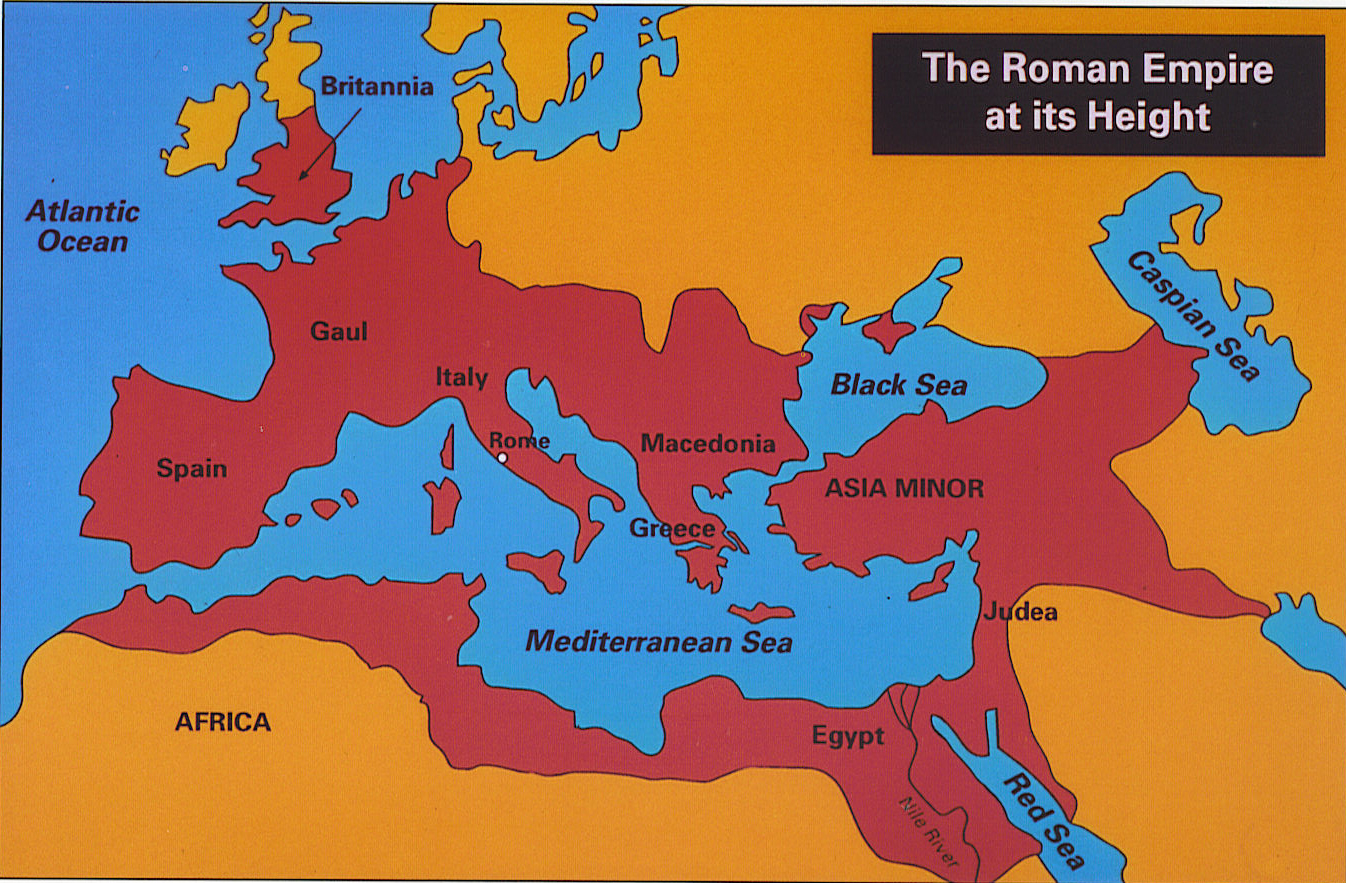
After the break-up of the Roman Empire, did all those long established power structures just dissolve? I doubt it.
The Holy Roman Empire, for example (supposedly a remnant of the Roman Empire) displayed symbolism later used in Wales, France, Russia, Germany, Spain, etc. in the form of what they call - 'Fleur-De-Lis', the dragon in Wales/Spain symbolism, and the Eagle/Phoenix used by Germany, Russia, The United States and many other European countries.
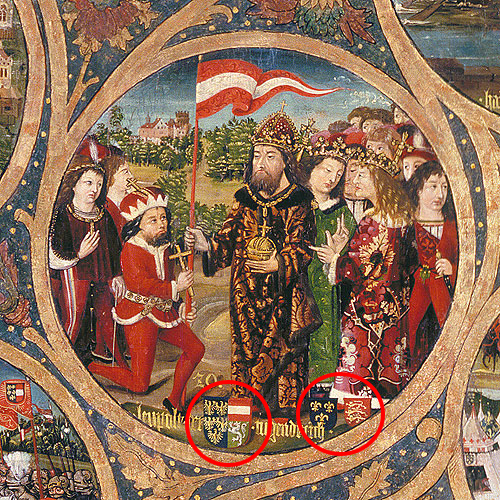

After the break-up of the Roman Empire, did all those long established power structures just dissolve? I doubt it.
The Holy Roman Empire, for example (supposedly a remnant of the Roman Empire) displayed symbolism later used in Wales, France, Russia, Germany, Spain, etc. in the form of what they call - 'Fleur-De-Lis', the dragon in Wales/Spain symbolism, and the Eagle/Phoenix used by Germany, Russia, The United States and many other European countries.

edit on 3-1-2016 by nOraKat because: (no reason given)
originally posted by: nOraKat
The Holy Roman Empire, for example (supposedly a remnant of the Roman Empire)...
It owed more to the Germanic tribes than anything that had to do with Rome for its powerbase.
edit on 3-1-2016 by AugustusMasonicus because: Ph'nglui mglw'nafh Cthulhu R'lyeh wgah'nagl fhtagn
a reply to: Spider879
Nice post Spider,
I might remind everbody that before there were celto-iberians, or phonecians in Iberia, Agean people had settled there, looking for metals.
Early Minoan Colonization Of Spain
That article is just a part of a very good blog on the Minoans and the copper/bronze age Med.
I might also add that, those early Agean people in the western med, set the stage for the Roman Empire itself and the Phonecians/Carthaginians.
Nice post Spider,
I might remind everbody that before there were celto-iberians, or phonecians in Iberia, Agean people had settled there, looking for metals.
The Iberian Pyrite Belt
and
First Minoan Settlements in Southeastern Iberia
3800 B.C. to 3200 B.C.
The western Mediterranean area is much more heavily mineralized than in the east except in the Balkans and northern Greece. Over time their ships would have come to a place in the western seas that provided them with all the valuable mineral ores they had so little of and could ever desire. That place was southern Portugal and Spain. This is the location of the renowned geological formation known as the “Iberian Pyrite Belt”. It is one of the most heavily mineralized places on earth with an abundant supply of the prestige metals of gold and silver as well as copper and tin that is still being mined to this day.
The new Cypress ships must have been a source of amazement wherever they were sighted by the coastal Neolithic peoples. During the time since the completion of the spread of the Aegean (Cardial) Neolithic package, local and regional coastal maritime trading was active as well as the influx of new settlers every year from the eastern Mediterranean. The Minoans probably began exploring the shores of the Mediterranean for mineral ores between 3900 and 3700 B.C. and arrived on the eastern coast of Iberia during this time. At least one person on these ships of exploration would have been keenly observing the beaches and rivers along the coast for the glittering signs of alluvial gold in the sands and sediments. If gold was found at the mouth of a river they would know that somewhere up that river would be the quartz-bearing ores that produced it. The same would be true for silver with its mineral ores of Argentite and Acanthite and the brightly colored ores of copper (Azurite, Cuprite, and Malachite).
Aside from their ships, the use of metals, and their Mesaran Crete funerary practices they would have used the same Neolithic agro-pastoral technological package as the indigenous Iberians. When they surveyed the river basins of Almeria in southeastern Spain they found everything they were looking for. For several centuries they probably would have been satisfied to sift the alluvial sediments for metals and established settlements in the river basin areas. Eventually, they would have moved up to the inland sources of the alluvial metals to form permanent mining settlements and that's exactly what they did. By 3200 B.C. many of the fortified towns of the Aegean Minoan colony (Los Millares culture) had been founded and all of them were directly linked to mining operations or their defense (Almizaraque - Silver, El Barranquete - Gold, El Tarajal - Gold and Silver, Los Millares - Copper, Los Pilas - Gold, etc.).
Early Minoan Colonization Of Spain
That article is just a part of a very good blog on the Minoans and the copper/bronze age Med.
I might also add that, those early Agean people in the western med, set the stage for the Roman Empire itself and the Phonecians/Carthaginians.
edit on p0000001k10102015Sun, 03 Jan 2016 18:10:02 -0600k by punkinworks10 because: (no reason given)
originally posted by: Spider879
Archaeologists have begun uncovering the remains of what they think could be one of the most important Roman settlements in Spain, under the present-day town of Jimena de la Frontera. Jimena de la Frontera [Credit: Airdronerc] Three Spanish archaeologists stand at the top of what is known locally as the Moorish castle looking at detailed plans. As well as showing the extent of their latest excavations, the drawings reveal that the hilltop town has some of the most significant and virtually untouched Roman remains in the region showing the town to have been a major settlement and shedding light on the power structure of the occupying force of the time. The Castillo de Jimena de la Frontera is the original settlement of the current population of Jimena containing traces of an ancient and multi-cultural history, yet its existence lay hidden for many centuries until a retired archaeologist who used to walk up to the castle on a daily basis spotted signs of early Roman occupation. According to Juan Miguel Pajuelo, the archaeologist who is co-ordinating the phases of the investigation, without the initial unpaid work carried out by Hamo Sassoon who retired to Jimena, the extraordinary Roman city could have still remained undiscovered.
Read more at: archaeologynewsnetwork.blogspot.jp...
Follow us: @ArchaeoNewsNet on Twitter | groups/thearchaeologynewsnetwork/ on Facebook
The view overlooking the plains is breath taking and a great command and control site, I understand why Rome lost the British Isles and even Germania but how could they lose Spain.
Bilingual coins found on the site are proof of the existence of a Libyan-Phoenican settlement on the site with the name "OBA". After the conquest by Rome the name OBA was Latinised and converted into Res Publica Obensis, endowing it with the status of a town ruled by Latin law under the government of Emperor Vespasian.
A perfect example of pax Romania knitting their known world together, if only they were less brutal and militaristic the beginning of globalization. pls kilk the link and enjoy.
When I went to Spain, many years ago, I went to my namesakes origin of place. It was the town of Monreal. Southwest of Madrid.
There is an ancient tower that is crumbling there. So I wonder if this place does hold ancient Roman secrets.
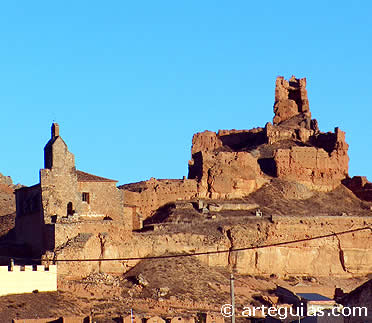
El Castillo De Monreal
edit on KSun, 03 Jan 2016 20:29:45 -0600pm3120154540 by Kratos40 because: forgot referrence
new topics
-
A Warning to America: 25 Ways the US is Being Destroyed
New World Order: 2 hours ago -
President BIDEN's FBI Raided Donald Trump's Florida Home for OBAMA-NORTH KOREA Documents.
Political Conspiracies: 7 hours ago -
Maestro Benedetto
Literature: 9 hours ago -
Is AI Better Than the Hollywood Elite?
Movies: 9 hours ago
top topics
-
President BIDEN's FBI Raided Donald Trump's Florida Home for OBAMA-NORTH KOREA Documents.
Political Conspiracies: 7 hours ago, 27 flags -
Weinstein's conviction overturned
Mainstream News: 17 hours ago, 8 flags -
Gaza Terrorists Attack US Humanitarian Pier During Construction
Middle East Issues: 14 hours ago, 8 flags -
Massachusetts Drag Queen Leads Young Kids in Free Palestine Chant
Social Issues and Civil Unrest: 16 hours ago, 7 flags -
Las Vegas UFO Spotting Teen Traumatized by Demon Creature in Backyard
Aliens and UFOs: 13 hours ago, 6 flags -
A Warning to America: 25 Ways the US is Being Destroyed
New World Order: 2 hours ago, 5 flags -
Meadows, Giuliani Among 11 Indicted in Arizona in Latest 2020 Election Subversion Case
Mainstream News: 16 hours ago, 5 flags -
2024 Pigeon Forge Rod Run - On the Strip (Video made for you)
Automotive Discussion: 13 hours ago, 4 flags -
Is AI Better Than the Hollywood Elite?
Movies: 9 hours ago, 3 flags -
The functionality of boldening and italics is clunky and no post char limit warning?
ATS Freshman's Forum: 15 hours ago, 1 flags
active topics
-
University of Texas Instantly Shuts Down Anti Israel Protests
Education and Media • 266 • : SchrodingersRat -
New whistleblower Jason Sands speaks on Twitter Spaces last night.
Aliens and UFOs • 66 • : baablacksheep1 -
Gaza Terrorists Attack US Humanitarian Pier During Construction
Middle East Issues • 31 • : 5thHead -
HORRIBLE !! Russian Soldier Drinking Own Urine To Survive In Battle
World War Three • 50 • : F2d5thCavv2 -
Russia Ukraine Update Thread - part 3
World War Three • 5732 • : F2d5thCavv2 -
The Acronym Game .. Pt.3
General Chit Chat • 7751 • : F2d5thCavv2 -
Salvador Dali's Moustaches
People • 28 • : zosimov -
Is AI Better Than the Hollywood Elite?
Movies • 17 • : ThePsycheaux -
The best Rice dish i've ever tasted... Kimchi Rice
Food and Cooking • 26 • : lamhaocc -
A Warning to America: 25 Ways the US is Being Destroyed
New World Order • 1 • : 727Sky
